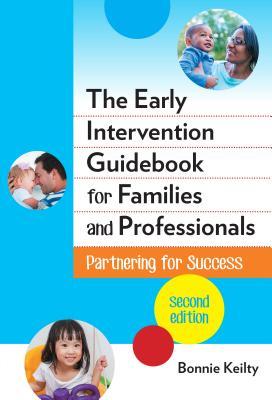This guidebook on family-professional partnerships has been used as a go-to early intervention resource in university coursework, for inservice professional development, and as a support to families in (or considering) early intervention. This new edition has been completely revised to reflect recent research and respond to feedback that the author accumulated from users of the first edition, including practicing professionals and university instructors. With a focus on how families and professionals can collaborate effectively so that infants and toddlers (0-3) learn, grow, and thrive, chapters address: child learning and development, family functioning and priorities, early intervention as a support and not a substitute, and planning "what's next" after early intervention. Specific components of early intervention--evaluation and assessment, program planning, intervention implementation, service coordination, and transition--are also discussed. This hands-on resource uses stories of families in early intervention to illustrate key concepts and provides checklists that readers can use to assess their experiences in early intervention.
New for the Second Edition:
- The most recent research and related implications for practice.
- Content directly aligned with new recommended practices of the Division for Early Childhood (DEC) of the Council for Exceptional Children.
- Two versions of the same scenario to clarify the differences between hoped-for and usual practices.
- Specific tips that the family-professional partnership can implement right away.
- A new chapter that describes how families and professionals, university instructors, and inservice providers can use the Guidebook.
